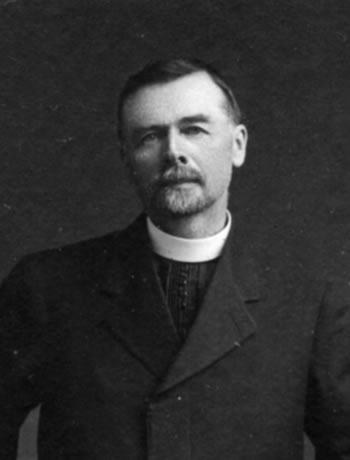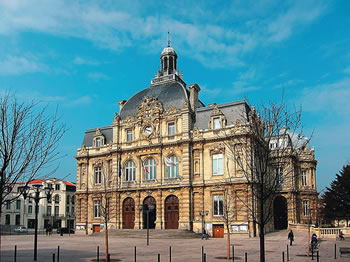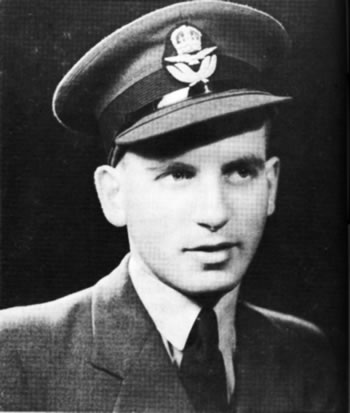Pā Hohepa’s Dream (2)

Fr Delach (Pā Hohepa)
The June issue of the Marist Messenger contained an article by Fr Christopher Martin sm, about Fr Francis Delachienne (often known as Fr Delach, and as Pā Hohepa).
This article, by Fr Noel Delaney sm, re-printed from the MM of April 1989, complements Fr Martin’s article.
Fr Delaney died in February 2016.
In 1938, Leslie Joseph McDonald from Ōtaki, who was 21 years of age, visited Fr Delach in Senlis, France. The following is an extract from a letter he wrote to his grandmother, Flora McDonald, of ‘Heatherlea,’ Levin:
The Second Visit, 14 August 1938
I left Paris at 10.30 a.m. on this Sunday morning and arrived by train in Senlis at noon. I found Fr Delach just finishing his lunch in his room at the College of St Vincent. He immediately ordered something for me and sat and talked while I ate. Afterwards, a young man named Paul Lourde took me round to have a look at the town of Senlis. He was one of the students at the College who happened to live in Senlis.
When we returned to the College Father Delach produced a bottle of Burgogne and proposed at toast, “To your health, to Ma’s and all the McDonalds.” After talking for some time, we went down to a little private dining room and had tea.
Father Delach said that if he had been allowed to continue with his missionary work, he could have penetrated into the Hawkes Bay district as he had at that time been invited by one of the most important Chiefs there to go through to baptise his son, which in Māori custom means that the Chief also is baptised.
He had a great admiration for the Māori people and firmly believed that, if the Māori Missions had been suitably encouraged, they could have helped them a great lot not only by bringing the faith to them but also by keeping them together with meetings and so forth and preventing them from adopting unsatisfactory ways of living and bad housing as they have done in the past few years. He said there should never have been any need for the government to have to take steps to improve forcibly their living conditions, and much of their tradition and noble customs could have been preserved, and the Māori language perpetuated among them.
He had corresponded at odd times with Father Durning in Otaki and Father Herlihy but only in response to letters from them asking for some information about matters pertaining to the Māori people. He spoke too of Father Cognet. He mentioned that he and Father Cognet were both very ill in Otaki and they were taken to Wellington and each had a different doctor. Each doctor swore that the other’s patient would die first and Father Delach said it was very cheerful hearing them compare their respective cases each morning. After being in hospital for some time he saw that he was not making progress and the time was getting near for the opening of the new Church at Rata. It was Christmas and no one could or would leave his parish to go to Rata, so he decided that he would have to go himself and asked the doctor to let him go. The doctor said that he could go but need not expect to return alive.
That night he wrote to Taruru in Otaki and told her to have someone at the Otaki Station the next day to meet him. Early the next morning, with the help of a nurse, he managed to get away without the doctor knowing and duly arrived at Otaki where he rested until the following morning and then he and several Māori friends set off to Rata in the train. They arrived there in the afternoon and prepared for midnight Mass. The Confessions commenced early in the evening and continued on for so long that he had to stop and send for Taruru to come and tie him in his chair to prevent him from falling as he was too weak to stand the strain. After that he celebrated midnight Mass for about 700 people and on the following day the Church was opened with a very large Māori meeting and, on returning to Otaki afterwards, he learnt that Father Cognet had died in his absence. He said that the strain of the journey to Rata left him ill for a long time afterwards and was the beginning of the long periods of illness that he afterwards had.
He told me that he wished to give me something to take back with me to New Zealand but had not the time to select or buy anything suitable but that when I entered his room on the first occasion he was in the act of saying the rosary, so he said: ‘I will give you that Rosary on the condition that you give it to Ma for as long as she lives and afterwards it will be yours to do with as you will, but it will always carry my blessing and will bring you the help of God.’

Tourcoing Town Hall
He said that he had tried since I was last there to write a letter for me to take back to Ma but said that he couldn’t as he felt incapable of putting on paper all that he wished to say, but that he would try again and probably write to me in London before I left. He asked me to remember him to all his old acquaintances in New Zealand whom he had mentioned and especially to give his sincerest regards to all our family. On August 15th, 1938, I waved farewell to Father Delach from the train. He is a great man, and one who has given the best of his life to the Māori people.
Tourcoing, August 29th, 1938
 Pilot Officer Leslie Joseph McDonald lost his life as a result of an aircraft accident on 13 January 1941. Just prior to his death, he had been transferred to a special short training course, after having completed six months of operational flying. In that time, he had engaged in 35 bombing raids over Germany and Italy. The following letter from the Chaplain of his Air Force Station speaks for itself:
Pilot Officer Leslie Joseph McDonald lost his life as a result of an aircraft accident on 13 January 1941. Just prior to his death, he had been transferred to a special short training course, after having completed six months of operational flying. In that time, he had engaged in 35 bombing raids over Germany and Italy. The following letter from the Chaplain of his Air Force Station speaks for itself:
Officer’s Mess, Royal Air Force Station,
Topcliff, Thirsk, Yorks.
Dear Mr McDonald,
I offer you my deepest sympathy upon the great loss you have suffered this day. The accident took place at seven minutes to twelve o’clock, two and a half hours ago, about three miles from here, and the nature of the crash was such that all the crew were killed instantly. It is now two thirty p.m.
As perhaps you know, your son was promoted to fly one of our latest aircraft on account of the exceedingly good record he held as a pilot.
I am rather stunned at the news, and find it difficult to realise the great personal loss I have had.
Your son was a most devout and exemplary Catholic, and a tremendous help to me. I have been Chaplain with him since August last, until he was posted to Linton Dec 12 or 13.
I was having lunch when his Wing Commander told him he was promoted, and recall his flush of pleasure. He told me afterwards that he was afraid he would be sent for a rest, and had been ‘thinking for a while how he would dodge it.’
I said Mass for his intentions the day he left this station. I see in my Mass intention record, that I said Mass for his intentions Dec 12th and 13th.
I have known him to go on a long flight over enemy country and be at Mass and Holy Communion a few hours after he had returned.
He was tremendously appreciated by officers and men. I use the word appreciated to avoid the word popular, to show that he was something more than a ‘popular’ officer, he was loved and admired.
Really! The world can ill afford to lose such characters. But our Lord knows best.
Your son has done a magnificent thing. He lived a good Catholic life, and has laid it down in a noble cause.
We are fighting something hideously evil.
National and economic factors enter into it, but the base of the trouble is with evil men who want to create an order of society on evil principles. They will not prevail against the lives and the supreme sacrifice of such chosen souls as your son.
Naturally I am heartbroken, supernaturally I can but envy this sign of Our Lord’s love and predilection which has been given him.
I thank Our Lord for having known him, and for all the help that he has been to me. I shall offer up holy Mass for him tomorrow.
Yours very sincerely,
Arthur Kavanagh SJ
 Entries(RSS)
Entries(RSS)